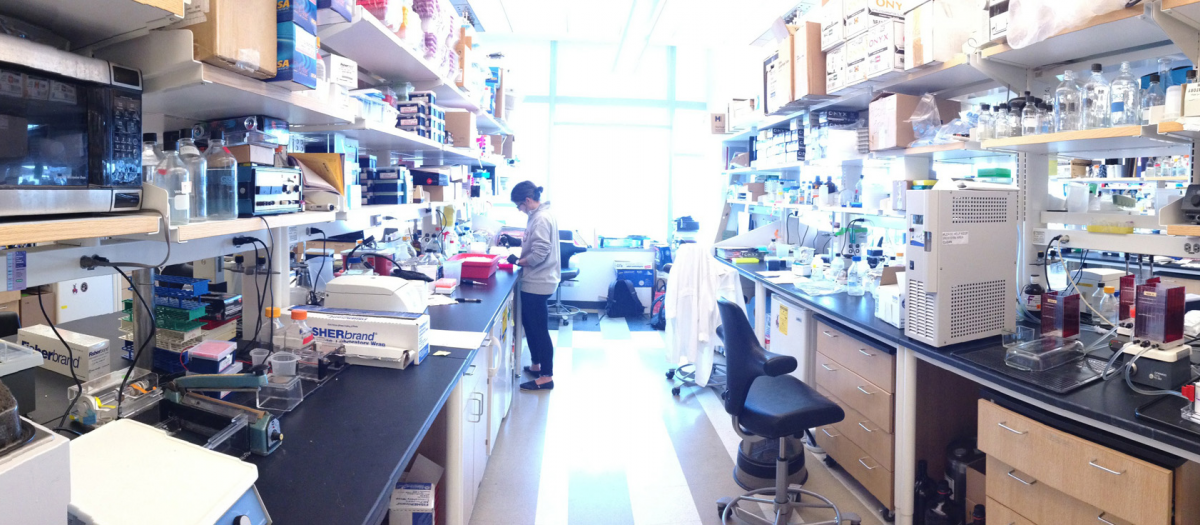The University of Chicago Digestive Diseases Research Core Center
University of Chicago Medical Center
900 #. 57th Street MB 9
Chicago, IL 60637
773-702-6458
Technical contact:
Joeli Brinkman
773-834-0832

The University of Chicago Digestive Diseases Research Core Center
University of Chicago Medical Center
900 #. 57th Street MB 9
Chicago, IL 60637
773-702-6458
Technical contact:
Joeli Brinkman
773-834-0832
Since its founding in 1990, the Digestive Disease Research Core Center at the University of Chicago has stood at the forefront of medical research. Today, we have a research base of over 50 members. Our five cores are each lead by top investigators, committed not only to the highest level of innovation in their own fields, but to sharing their research with colleagues in other cores. This integrated, multidisciplinary approach is evident in that 30% to 40% of publications made possible through the DDRCC each year are the result of collaborations.
We strive to provide our state-of-the-art core facilities and services through the most cost-efficient means possible. Our robust research base has an annual direct cost of $12 million. More than 40% of this funding is provided by the National Institute of Diabetes and Digestive and Kidney Diseases (NIDDK).
Each year our P & F Program funds innovative pilot programs in areas relevant to the DDRCC’s overall mission. Click here to see latest announcement.
Pilot and Feasibility awards are offered for the purposes of:
Applications which emphasize DDRCC core use and which will strengthen collaborative interactions among scientists within the digestive disease research community are particularly encouraged. It is strongly anticipated that the results of these pilot projects will eventually permit investigators to compete successfully for extramural research support in IBD and related areas of gastrointestinal research.
Broad aspects of basic and translational/clinical research related to enteric microbiology, inflammation, and immunology of the digestive tract and pathogenesis, genetics, pathophysiology, and bench-to-bedside aspects of inflammatory bowel disease, celiac disease or food allergy will be given higher priority. In addition, proposals focused on the examination of growth and differentiation, cancer biology, intestinal epithelial biology and pathobiology of the gastrointestinal tract (including the luminal GI tract, liver, pancreas, biliary system, etc.), as well as basic or clinical research in the areas of nutrition and digestive diseases are appropriate topics for Pilot & Feasibility studies. Please feel free to ask for guidance if you are unsure about the suitability of your topic or project.
See the following for examples of past funded proposals and the range of research activities supported through this mechanism.
Funds for Pilot & Feasibility projects are available for an initial period of one year and are limited to a maximum of $37,500 in direct costs. In general, funds have been allocated in the range of $30,000 to $37,500, although in exceptional circumstances, awards have been made up to the maximum allowable amount. Successful candidates are required to provide a progress report 6 months into the fiscal year for continuation of funding. Outcome of progress during the first year will determine if applicants will be invited to reapply for a second year of funding.
Congratulations to this year's award recipients: Albert Bendelac, Joe Pierre, Dengping Yin, Dion Antonopoulos, and Haochu Huang
Questions? Contact P&F Program Director Cathryn Nagler at cnagler@bsd.uchicago.edu
Please acknowledge support from the DDRCC (NIDDK P30DK42086) in your publications and presentations.